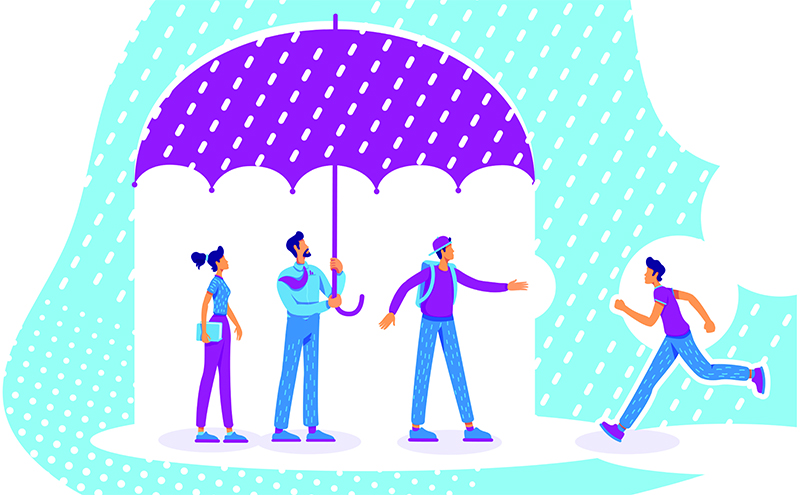By Lucy Willis, MD, and Renu C. Mital, MD, FACEP
An emergency physician’s first unexpected bad outcome or lawsuit can be devastating. Many of us wonder why everyone else seems to be coping better. Am I the only one who feels this way?
Once you open up to a colleague, you realize you are not alone. While we are in the business of saving lives, we are also in the business of death and dying. We take our careers and our oaths very seriously, and we are perfectionists. Guilt, second victim stress, and the psychological repercussions of feeling responsible for another human’s death are occupational hazards.
Historically, physicians are unlikely to reach out for support. Our bootcamp-style training teaches us to ignore our own feelings and put one foot in front of the other.i Unfortunately, the high suicide rates in our profession and mental health crises of the pandemic demonstrate this is not a sustainable approach.
Occupational hazards demand a systemic approach to prevent and protect. An integral part of this program is peer support. There is nothing more reassuring than hearing that another respected physician has been in the same shoes.
When we create a program that allows for physicians to share their stories and strategies, imperfection and vulnerability are normalized. The “culture of silence”ii is transformed into a culture of strength and stability.
In our department, we have a two-pronged approach: group and one-on-one peer support.
Peer Support in a Group Setting
Our group program, Doc Box, was previously held in each other’s apartments, but is now held more frequently via Zoom and sometimes moderated by a psychiatrist. It has given us the opportunity to combat social isolation and share our fears and strategies throughout the pandemic. At a time of constant change amidst this seemingly endless pandemic, many of us feel closer and more cohesive than ever. We discuss how we decompress at the end of a busy shift, our different approaches to balancing safety and mental health for our children, and our feelings about the many tragedies in the EM community this year. Most importantly, we get to know each other outside of work, which establishes a culture of safety and trust necessary for physicians to reach out in times of crisis.
One-on-One Peer Support
After the first wave of COVID-19 cases hit NYC, surveyed faculty were interested in an individualized peer support option. We created a one-on-one peer support program to provide an avenue of confidential support to those who may not feel comfortable expressing their feelings in a group setting, particularly given the ongoing stress, trauma, and personal and professional isolation of the pandemic.
We created a network of 10 senior faculty mentors to reach out to all 100+ faculty mentees, inclusive of the mentors themselves and those in leadership positions. Our goal was two check-ins during a four-month period. Informal feedback has been overwhelmingly positive for both the mentors and the mentees.
Peer support transforms culture and encourages unity. Not only do we get to experience the satisfaction of providing support, but colleagues become family who lean on each other during challenging times.
i. Drummond, D. Stop Physician Burnout: What to Do When Working Harder Isn’t Working. 2014.
ii. Shapiro J, McDonald TB. Supporting Clinicians during Covid-19 and Beyond - Learning from Past Failures and Envisioning New Strategies. N Engl J Med. 2020 Dec 31;383(27):e142. doi: 10.1056/NEJMp2024834. Epub 2020 Oct 14. PMID: 33053277
About the Authors
Lucy Willis, MD
Assistant Professor of Emergency Medicine &
Co-Director of Faculty Wellness Committee
Weill Cornell Medicine, Emergency Medicine, New York, NY
Renu C Mital, MD, FACEP
Senior Associate Attending, New York Presbyterian Hospital
Assistant Professor of Clinical Medicine & Co-Director Faculty Wellness Program,
Weill Cornell Medicine, Emergency Medicine, New York, NY
Related Resources:
- More peer support resources
- ACEP Wellness Hub, with resources for peer and professional support
- ACEP member benefit: Free wellness coaching/counseling, plus financial/legal consulting for an additional $15/year



